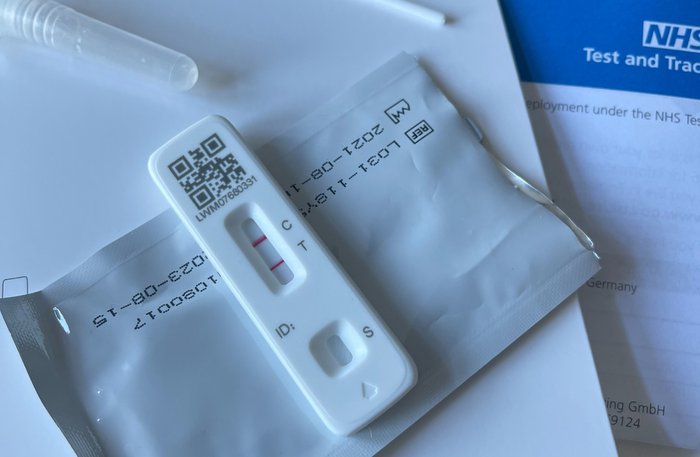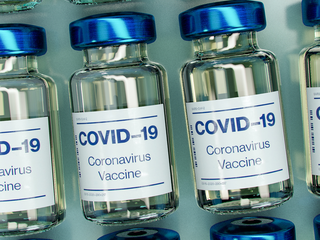One in 22 Covid deaths are in people with blood cancer
According to new data from the Office of National Statistics, 1 in every 22 people who died of Covid in England and Wales between January and March had blood cancer.

People with blood cancer are greatly over-represented in Covid deaths
The data published today (April 27) shows 404 people with blood cancer died of Covid during these three months, out of a total of 8,769 deaths. It takes the total number of Covid deaths of people with blood cancer during the pandemic to 3,963. Around one in 270 people in the UK have blood cancer, which means they are greatly over-represented in Covid deaths.
In response to this new data, we're calling on the NHS and the Government to do more to protect people with blood cancer. There are three things we believe would significantly reduce the number of people dying.
We're calling on NHS and the Government to:
1) Speed up the vaccine roll-out
The vaccine roll-out for the immunocompromised has been far too slow and made it difficult for the immunocompromised to access the doses they need, meaning many people haven't got the protection they need. The Government and NHS should treat this with much more urgency, and NHS England must publish a plan for how it will speed up the roll-out.
2) Improve access to new treatments
The NHS needs to make sure everyone with blood cancer eligible for new treatments can access them quickly if they test positive for Covid. In many cases this is working well and saving lives, but we're still hearing from people who are struggling to access them.
3) Set out a plan for giving immunosuppressed people access to Evusheld
The Government should set out its plan for giving people access to Evusheld, a treatment that can help protect people whose weakened immune systems mean they have not responded well to the vaccines. The treatment has been approved by the Medicines and Healthcare products Regulatory Agency (MHRA) and is already available in countries like the United States and Israel. But the Government has not yet set out how it plans to use it to protect vulnerable people here.
Gemma Peters, Chief Executive of Blood Cancer UK, said:
“This data shows that despite many of them continuing to be careful and trying to avoid social interactions, people with blood cancer are continuing to die of Covid at alarming levels. We can understand why the Government wants the country to get back to normal, but this shows its failure to accompany this with better protection for the immunocompromised has had tragic consequences.
“Each of the 404 people with blood cancer who died of Covid between January and March is a tragedy, and it is likely that a number of these deaths could have been prevented if the Government and NHS England had done more to protect them. We hope this data acts as a spur for the Government and the NHS to do more.
“The badly managed roll-out of vaccines for the immunocompromised stands in stark contrast to the success of the general vaccine roll-out, and we cannot understand why NHS England is not treating this with more urgency. The tragic fact is that until NHS England gets a grip on this, we are likely to see more deaths in people with blood cancer that could have been prevented with a readily available vaccine that costs just a few pounds.
“The NHS also needs to improve its processes to make sure everyone with blood cancer who gets Covid can access new treatments to give them the best chance of surviving. While we can understand why there were teething problems when the new treatments were made available in January, it is unacceptable that we are still hearing about people struggling to access them three months on.
“We also want the Government to make Evusheld available for some people with blood cancer who haven’t had an antibody response to the vaccines. In 2020, the Government was prepared to buy vaccines before it was clear that they worked - they recognised that it was a risk worth taking, given the potential benefits of the vaccines. Given that there are some people with blood cancer who are still at significant risk, we should be taking the same approach to them.”

Visit our coronavirus hub
Visit our covid hub to read detailed information about the coronavirus vaccine and blood cancer.
